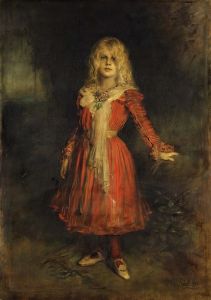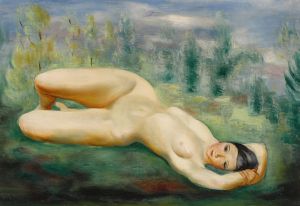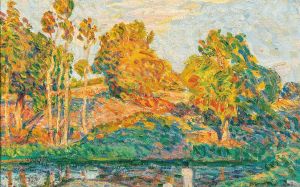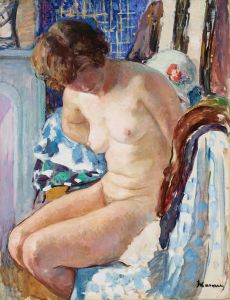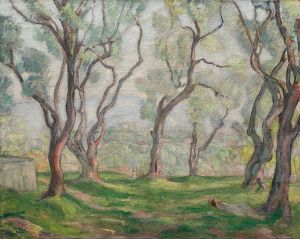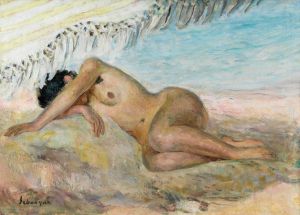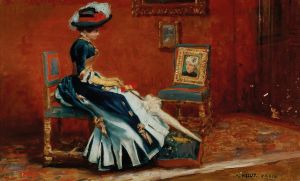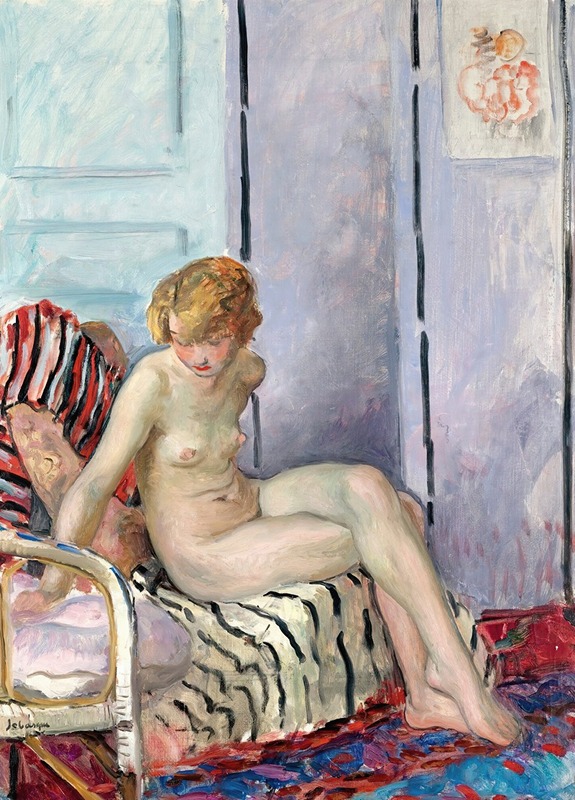
Nu Assis
A hand-painted replica of Henri Lebasque’s masterpiece Nu Assis, meticulously crafted by professional artists to capture the true essence of the original. Each piece is created with museum-quality canvas and rare mineral pigments, carefully painted by experienced artists with delicate brushstrokes and rich, layered colors to perfectly recreate the texture of the original artwork. Unlike machine-printed reproductions, this hand-painted version brings the painting to life, infused with the artist’s emotions and skill in every stroke. Whether for personal collection or home decoration, it instantly elevates the artistic atmosphere of any space.
Henri Lebasque (1865–1937) was a French post-impressionist painter known for his use of light, color, and intimate subject matter. Among his works is the painting Nu Assis (Seated Nude), which exemplifies his mastery of depicting the human form in a relaxed and naturalistic manner.
Nu Assis portrays a seated nude figure, rendered with Lebasque's characteristic soft brushstrokes and warm color palette. The painting reflects his interest in capturing the quiet, intimate moments of everyday life, a theme that recurs throughout his oeuvre. Lebasque was influenced by the Impressionists and later by the Fauves, and his work often bridges these two movements. His use of light and color in Nu Assis demonstrates his ability to create a sense of warmth and tranquility, qualities that define much of his artistic output.
Lebasque studied at the École des Beaux-Arts in Paris and worked alongside prominent artists such as Camille Pissarro and Auguste Renoir, whose influence can be seen in his approach to light and composition. He was also a founding member of the Salon d'Automne, an important exhibition space for modern art in early 20th-century France. His works, including Nu Assis, often focus on domestic scenes, landscapes, and portraits, with a particular emphasis on the harmony between the subject and its surroundings.
While specific details about the creation of Nu Assis are not widely documented, the painting is representative of Lebasque's broader artistic style and themes. His works are celebrated for their intimate and serene qualities, which set him apart from many of his contemporaries. Today, Lebasque's paintings, including Nu Assis, are held in private collections and museums around the world, where they continue to be appreciated for their beauty and emotional depth.
No further specific historical or contextual information about Nu Assis is available.







